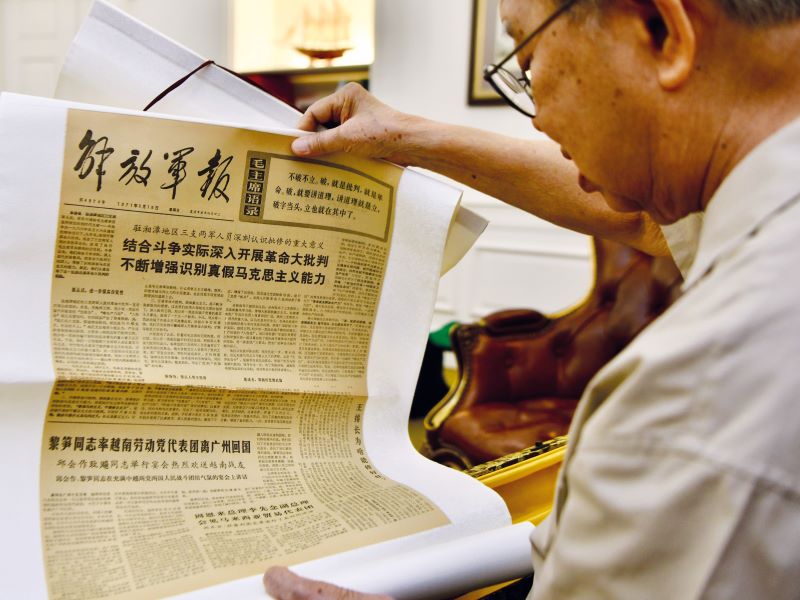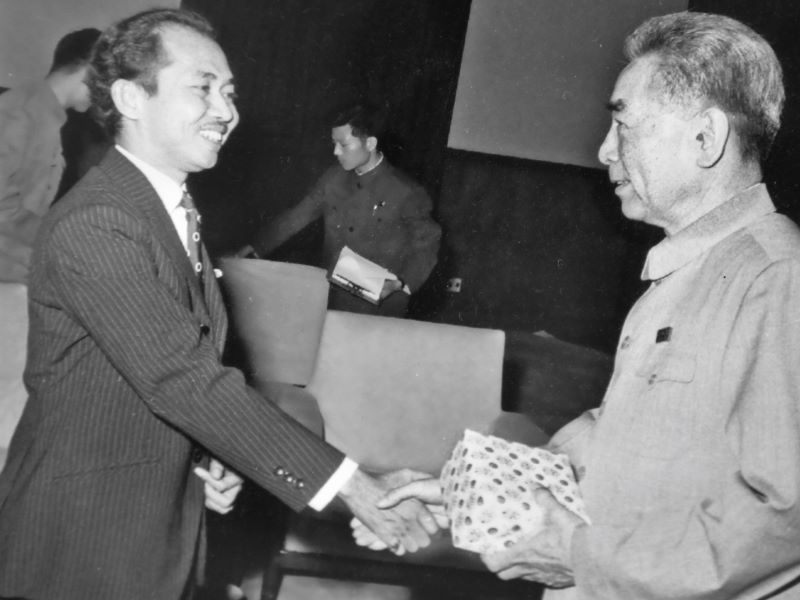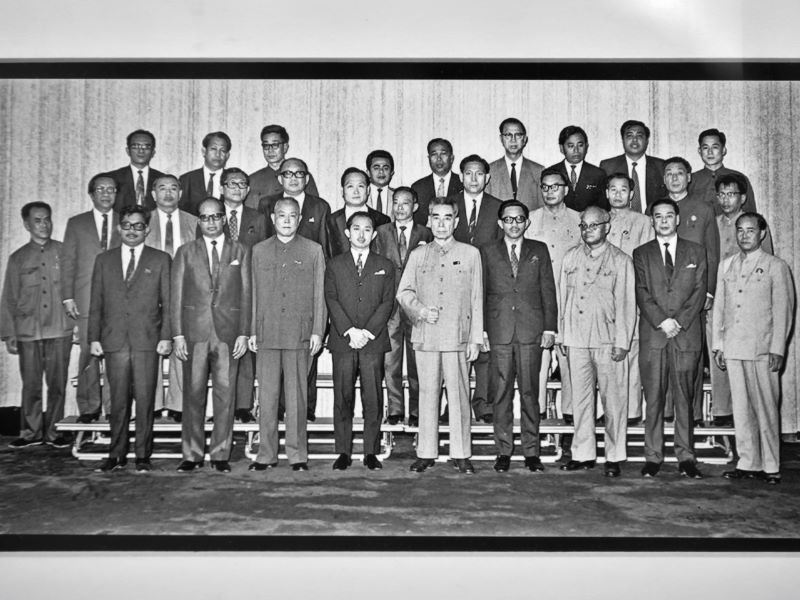
Tengku Razaleigh is often referred to as Ku Li, an affectionate derivative of his name (Photo: Sam Fong/The Edge)
If life is a story, then Tan Sri Tengku Razaleigh Hamzah’s is a long-running series comprising thousands upon thousands of riveting chapters. A familiar face in Malaysian business and politics, the royal prince from the house of Kelantan is the country’s longest serving member of parliament (he held Gua Musang in an unbroken line for almost 50 years) and was also minister of finance (1976-1984) and minister of international trade and industry (1984-1987).
Often referred to as Ku Li, an affectionate derivative of his name, he was in his early 30s and then-president of the Malaysian Chamber of Commerce when asked by the country’s second prime minister Tun Abdul Razak to travel to China as head of a trade mission. “I wasn’t even told who I was going to see except that it was somebody very big in China and very, very important.”
The history books will, of course, tell you that someone was none other than Chinese premier Zhou En Lai. “Previously, Malaysia was doing business with China via Singapore, Hong Kong, Taiwan and through agents of Chinese companies spread all over the world,” recalls Ku Li, 87. “I, of course, was baffled and wondered who it could be. I was also asked to tread very carefully.”
Leading a team of 19, including former Sabah chief minister Harris Salleh, Sarawakian timber tycoon and banker Ling Beng Siew and FELDA pioneer Tun Raja Alias, Ku Li recalls flying into Hong Kong and then taking a train to mainland China. “We were halted and all of us were questioned. Those who had been to Taiwan were separated from those who had never been. Those who fell into the first category, myself included, had to listen to a lecture while [copies of Mao’s] The Little Red Books were being brandished and propaganda songs sung. Come to think of it, Beng Siew, who had visited Taiwan the most, was lectured to the longest,” he chuckles.
20240612_peo_tengku_razaleigh_hamzah_19_sam.jpg

“When we got to Guangzhou, the trip’s organiser asked if we would like to see a ping pong demonstration. You must remember this was before the days of Nixon and ping-pong diplomacy and I was amazed, never thinking anyone, let alone such young kids, were able to play so well.”
Upon arrival in Beijing, Ku Li received a message on the second day that “the Chinese government would send a car to fetch me”. Upon arriving at the Great Hall of the People, to his great surprise, standing in a line at the top of the steps were faces he recognised from pictures in newspapers and magazines. And, of course, there was Zhou En Lai. “After being led in and taking our seats, Zhou said, ‘My friends and I would like to have a conversation with you’. That’s how he started and, before talking to me, he opened up an album and, page by page, showed me my picture, even pictures of my house in Kota Bharu, and identifying who I was and who the people who accompanied me were.”
20240612_peo_tengku_razaleigh_hamzah_21_sam.jpg

The mission, clearly a success, brought the message home to Abdul Razak that China strongly supported Malaysia’s principle of independence and desire for peaceful coexistence. Ku Li says the main impression Zhou and China left on him was their immense hospitality and sincere keenness to forge a friendship with Malaysia. “While in conversation with Mr Zhou, I noted he wasn’t looking very well as he had cancer. I happened to mention that my own mother was suffering from cancer and he quickly asked if I would like to talk to her. I was shocked and blurted out, ‘Is that possible?’ He immediately set about arranging it, fixing the line from London through to Paris, Singapore, Kuala Lumpur and Kota Bharu. In a few short hours, I could speak to her and the line was crystal clear. Although we didn’t talk long, the fact that we could was fantastic in itself. I had to say I was overwhelmed.”
More little touches of kindness and gestures of friendship kept punctuating the trip. “Midway, someone in the delegation remarked about wanting to eat nasi lemak. Our hosts made it happen, complete with sambal! This clearly reminded me of Zhou, who kept repeating, ‘Why shouldn’t we be friends?’”
20240612_peo_tengku_razaleigh_hamzah_22_sam.jpg

Despite visiting China only three times — from the landmark first trip to a holiday with his wife, the late Puan Sri Nor Yvonne Abdullah, who had wanted to go to the Great Wall, and once more after Hong Kong was handed back — Ku Li cannot stress enough the great leaps forward he has seen the country make with his own eyes. “In 1971, Tiananmen Square was just that. A great square. Now, it is surrounded by beautiful buildings and hotels. I can remember Beijing being flooded by thousands upon thousands of bicycles. Look at it now. Even Pudong in Shanghai back then was a sea of marshes and paddy fields. Now, you have some of the greatest skyscrapers in the world there.”
He also shares how newspapers then were posted for the public to read in big display cases along main streets and intersections, as exemplified by dailies like Renmin Ribao. “Look at them now, in the forefront of technology and innovation. What always impressed me about China and the Chinese was their collective discipline, sacrifice and being prepared to do whatever it took collectively to achieve progress. And they worked in tandem, never missing a beat. You cannot help but admire them. So many of us have always been persuaded to look West. But as Zhou said when we spoke, ‘The world is in Asia. The next century is our century.’”
This article first appeared on June 24, 2024 in The Edge Malaysia's 'Loong Report', which commemorates 50 years of Malaysia-China relations.


